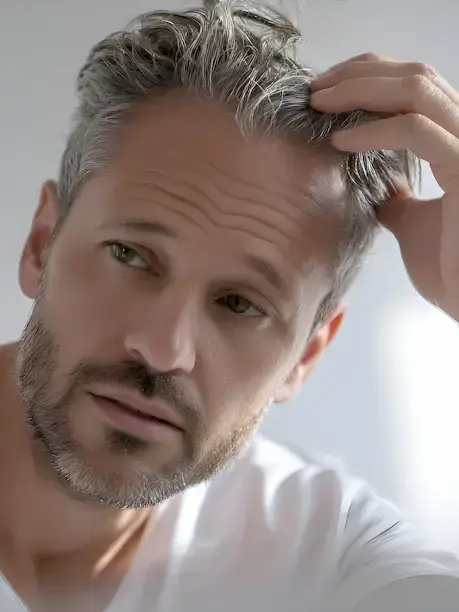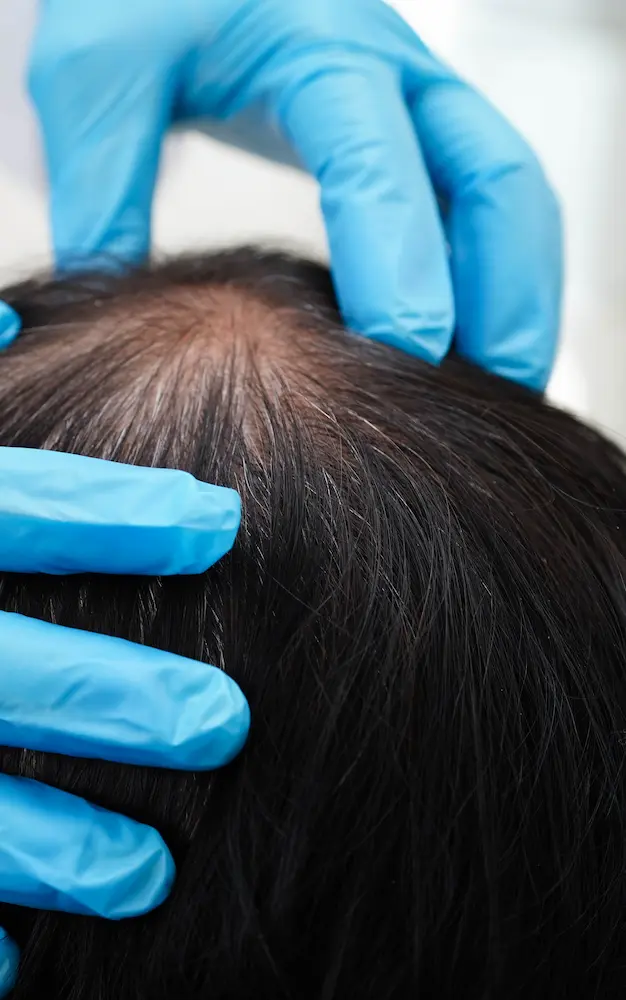Most dermatology appointments focus on visible skin concerns, but your scalp often gets minimal attention despite being home to 100,000 hair follicles. Here’s what dermatologists rarely have time to explain about comprehensive scalp health.
The Scalp Microbiome Reality
Your scalp hosts a complex ecosystem of bacteria, fungi, and yeast that directly impacts hair health. While dermatologists understand this scientifically, they rarely explain how daily habits disrupt this delicate balance.
The pH Factor Most commercial shampoos have a pH between 6-9, but healthy scalps maintain a slightly acidic pH around 5.5. This alkaline shift from regular shampooing creates an environment where harmful bacteria thrive and beneficial microorganisms struggle.
Sebum Production Misconceptions Dermatologists often recommend frequent washing for “oily” scalps, but excessive cleansing can trigger increased oil production as your scalp compensates for stripped natural oils. This creates a cycle of over-washing and increased sebum production.
Hidden Inflammation Triggers
Product Buildup Beyond Shampoo Dry shampoos, styling products, and even conditioners leave microscopic residue that accumulates over time. This buildup creates a barrier that prevents follicles from receiving adequate oxygen and nutrients, leading to weakened hair growth.
Environmental Toxin Accumulation Urban pollutants, chlorine from swimming pools, and even hard water minerals create oxidative stress on scalp tissue. These environmental factors rarely get addressed in standard dermatological care but significantly impact long-term hair health.
The Scalp Circulation Connection
Blood Flow Limitations Scalp muscles can develop chronic tension from stress, poor posture, and aging, restricting blood flow to hair follicles. While dermatologists might prescribe minoxidil to improve circulation, they rarely address the underlying muscular tension causing poor blood flow.
Lymphatic Drainage Issues The scalp’s lymphatic system removes metabolic waste from hair follicles. When lymphatic drainage is impaired through tension or poor circulation, toxins accumulate around follicles, creating an environment that inhibits healthy hair growth.
Nutritional Deficiencies Dermatologists Miss
Bioavailability Problems Taking biotin or iron supplements doesn’t guarantee scalp absorption. Digestive issues, medication interactions, and genetic variations in nutrient processing can prevent these supplements from reaching hair follicles effectively.
Trace Mineral Depletion Modern farming practices have reduced trace minerals in food. Selenium, zinc, and copper deficiencies specifically impact hair follicle function, but standard blood tests often miss subclinical deficiencies that affect scalp health.
Advanced Scalp Care Strategies
Deep Cleansing Protocols Weekly clarifying treatments using ingredients like salicylic acid or tea tree oil can remove buildup that regular shampooing misses. These treatments should be followed by pH-balancing rinses to restore scalp acidity.
Massage and Manual Therapy Daily scalp massage using specific pressure patterns can improve circulation more effectively than topical treatments alone. Japanese head spa techniques combine massage with circulation-enhancing tools for comprehensive scalp therapy.
Targeted Exfoliation Physical and chemical exfoliation removes dead skin cells that can clog follicles. However, the scalp requires gentler exfoliation techniques than facial skin due to its unique structure and sensitivity.
When Professional Intervention Is Necessary
Persistent Inflammation If scalp irritation, flaking, or unusual hair shedding continues despite improved care routines, underlying conditions like seborrheic dermatitis or autoimmune disorders may require medical treatment.
Sudden Changes Rapid hair loss, new bald patches, or significant changes in hair texture should be evaluated by dermatologists to rule out hormonal imbalances, nutritional deficiencies, or medical conditions.
The Holistic Approach
Comprehensive care extends beyond topical treatments to include stress management, nutritional optimization, and circulation improvement. While dermatologists excel at diagnosing and treating scalp disorders, the preventive and maintenance aspects of scalp health often require a broader approach.
Professional scalp treatments that address multiple factors simultaneously – cleansing, circulation, and relaxation – can complement medical care for optimal scalp health.
Explore professional scalp care options that address the comprehensive factors affecting your hair health through our directory of specialized practitioners.



